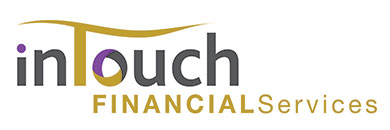Retirement Planning
Investing in your future
Helping our clients navigate to retirement, every step of the way
or call 510.653.8968
REtirement
Retirement planning is one of the most important processes that you can take. The earlier that you start, the earlier you will be able to retire.
At ITFS, we help you plan every step of the way, using a holistic approach to guide and direct you in the development of your retirement goals and objectives. We understand that there is no one approach to retirement planning. Therefore, we have several meetings before determining the best approach for you. We discuss, income,
expenses, short and long term goals, current real estate holdings or aspirations, children, elderly parents, and any other important fact.
Sometimes we need to consider assets that many firms typically do not consider in planning; our background in Real Estate, Lending, Insurance allows us to bring a knowledge base that many firms do not offer.
401(k) Planning
What is also included in the services that we provide, is to help you with your current 401(k).
We help you select the investment strategy that lines up with your overarching goals and objectives.
This is done initially when we are evaluating the larger picture, and annually, providing a comprehensive approach to planning.
- If you do not have an account with us and you would like to have an advisor review your current 401(k) strategy, contact us here.
- If you have a 401(k) at a previous employer, please contact us, so that we can assist you with a rollover. Once you leave your employer, so should your 401(k) holdings.
- If you do not have an account with us and you would like to have an advisor review your current 401(k) strategy, contact us here.
Retired? We are always Planning
At ITFS we believe that it is important to continue to have assets invested in the market for future growth, building a strategy that allows for both income and growth.
Since we are living longer, it is vital, that we continue to have assets that can be drawn
throughout those years.
The advisors at ITFS will help build a wise portfolio that is constantly working on your behalf.
Feel free to get “In Touch” with our team!
SMALL BUSINESS RETIREMENT PLANS
We have found the employers that offer retirement plans typically have a better employee retention rate. Whether you are self-employed or the owner of a small business, there is a wide range of retirement plans designed to meet your specific needs. Through ITFS retirement services, small business owners and self-employed individuals will get retirement plan management and specialized customer service.
Our team at ITFS, can sit down with you as a business owner, discuss the characteristics of your particular business, and formulate the right retirement plan for you. We do this by asking a series of questions, assessing the needs of the company, budget, and overall objectives. After reviewing the thousands of mutual fund choices, we narrow down a selection of funds unique to your business model and present that in the form of a retirement plan.
We also offer on-boarding services, first by holding a general office meeting to explain and answer questions, then we meet with each employee individually.
Types of Retirement Plans
SEP IRA: This plan features tax deferral and tax-deductible employer contributions for self-employed individuals and small businesses.
SIMPLE IRA: This plan offers both tax-deferred pretax contributions for self-employed individuals and participants in small businesses with fewer than 100 employees.
401(K) FOR SMALL BUSINESSES: Offer your employees a retirement plan with employee
contributions, employer contributions, and an array of other features. Typically, suitable for
employers with more than 20 employees.
SIMPLE 401(K): Designed for self-employed individuals or business owners without employees.
403(b): A 403(b) plan (also called a tax-sheltered annuity or TSA plan) is a retirement plan offered by public schools and certain 501(c)(3) tax-exempt organizations. Employees save for retirement by contributing to individual accounts. Employers can also contribute to employees’ accounts.
PROFIT SHARING: A profit-sharing plan accepts discretionary employer contributions. There is no set amount that the law requires you to contribute. If you can afford to make some amount of contributions to the plan for a particular year, you can do so. Other years, you do not need to make contributions. Also, your business does not need profits to make contributions to a profit-sharing plan.
